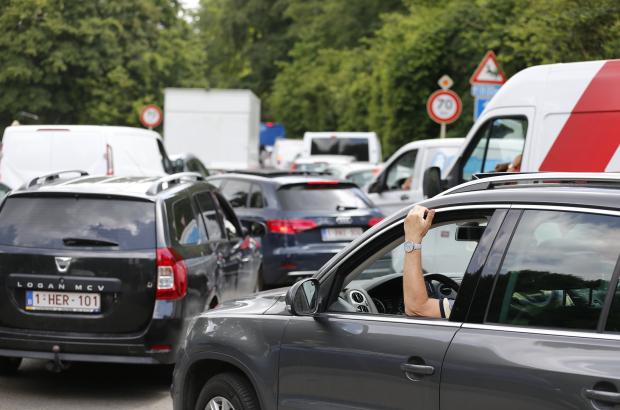- Daily & Weekly newsletters
- Buy & download The Bulletin
- Comment on our articles
Flemish mayors call for alternatives to proposed kilometre charge
In a letter to Rudi Vervoort, the minister-president of the Brussels-Capital Region, 35 mayors from the municipalities of De Rand – the Flemish periphery around Brussels – have asked that no unilateral kilometre-based congestion charge be imposed on motorists on Brussels roads.
They are pushing for more dialogue. "Such a levy has a profound impact on the 90,000 car commuters from the Halle-Vilvoorde region," the mayors wrote.
Since the Brussels government announced its intention to implement the proposed tax system - dubbed SmartMove – in 2022, it has been inundated with criticism. Not only has there been opposition from Flanders and Wallonia, but also from within the Brussels parliament, specifically from Socialist party heavyweights Ridouane Chahid, the group’s chairman, and its local vice president, Ahmed Laaouej.
Minister-president Vervoort himself has also expressed his reservations but has stressed that the kilometre charge will still go ahead as planned next year.
Recently, the debate over the divisive issue has died down but now the Flemish Rand is stirring, and the voices of opposition are rising again.
A survey by the Future Forum - a collaborative platform in which the 35 mayors in the Halle-Vilvoorde region discuss regional issues - shows that 90% of the suburbs around the capital are against the smart kilometre charge. The survey shows an understanding that there is a need to reduce car traffic in Brussels, but that SmartMove is not the solution the majority favours.
In the letter to Vervoort, the mayors of De Rand have urged the minister-president to find an alternative. "The 90,000 commuters often rely on a car to get to work in Brussels. They will be severely affected," the letter reads. In addition to commuting for work, residents of the periphery must also travel into the city for other reasons such as education and health care.
The Flemish mayors therefore believe that more alternative travel solutions should be made available to encourage a move away from the traditional influx into and out from the capital by car. "The Brussels region must be more accessible by public transport, bicycles and related sustainable mobility models," they state.
The mayors cite bicycle highways, an integrated public transport system with joint subscriptions and tickets and a metro or tram connection to Brussels Airport as possible solutions. The letter was also sent to the Flemish government. "We ask for steps to be taken to achieve dialogue," the letter concluded.



















